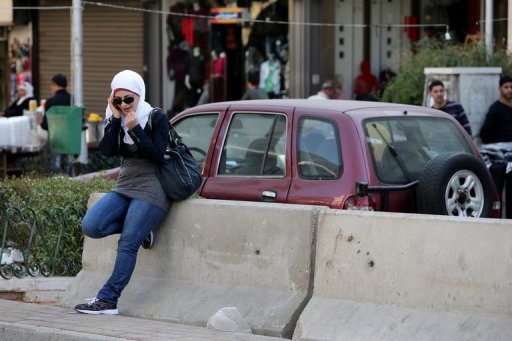CAIRO: The results of Hamas’ victory in the Palestinian elections, the official and public reactions to the Danish cartoons deemed offensive to Muslims, the ongoing ban on Al Wafd newspaper and Prime Minister’s Ahmed Nazif’s speech at parliament dominated the headlines throughout the week.
International talks between Egypt, Palestinian puthorities, Israel and the United States, regarding the victory by Hamas during the parliamentary elections, kept a prominent spot on the front page of newspapers during the week.
Editorials were no different. Writers in national and independent newspapers offered more than one analysis on the success and its affect on the region. Salah Montasser, in his column in Al-Ahram, said the results of the elections is a re-creation of what happened in Israel about 30 years ago, when the right wing came to power. He explained how Israel has helped Hamas come to power as an alternative to Fatah. “The question is: aren’t the achievements of Hamas what Israel has dreamt of? concluded Montasser.
The Al-Ahram editorial also tackled the same issue addressing the Palestinian reaction. “It’s important that Hamas continues the gradual change it has been undergoing in its path toward transforming itself into a responsible political movement, reads the editorial, which also described the importance of keeping the dialogue between Hamas and other Palestinian powers in order to reach a common vision.
Ibrahim Eissa had another take on the same issue. In his article in the weekly El Destour, Eissa summed up 10 lessons that should be learnt from Hamas’ landslide victory.
Applauding the democratic Palestinian elections in relation to the violence that plagued the Egyptian experience two months ago, Eissa noted the maturity of the Islamic stream in its acceptance of democracy and how this encourages the West to accept Islamists and the public rejection to authoritative powers as part of the “lessons.
“The problem is that no one will learn anything from the fall of Fatah’s rule and government, Eissa wrote, adding that if the ruling party in Egypt had proper integral elections, it wouldn’t stay in power for an hour. He also said that he hopes people would learn the “lesson of courage.
Public reaction to cartoons that were first published in a Danish newspaper and offended Muslims offered a rich topic for newspapers to report and for writers to analyze and comment on.
Danish Prime Minister Andrias Voug was quoted in Al-Ahram, saying he hopes this crisis ends following the apology made by the newspaper that published the cartoons. Meanwhile, calls to boycott Danish products have not stopped.
Al-Masry Al-Youm provided the local updates regarding the problem. On Tuesday, the paper said the union of trade chambers had banned the handling of Danish products and the effect of this boycott on relations with Europe was also highlighted. On Wednesday, the paper reported that some Azhar officials are supporting the boycott.
“In spite of the importance of the boycott as a sort of pressure, this campaign has to be limited to public efforts; governments should not be [involved] in it, reads the Al-Ahram editorial on Wednesday. The article offered different approaches to the boycott, citing the example of boycotting the products of the companies that advertise with the Danish newspaper in question.
Salama Ahmed Salama’s article in Al-Ahram carried similar concerns but with a lighter tone. He demanded stricter laws regulating the rise of businessmen to public offices.
These articles coincided with Prime Minister Ahmed Nazif’s address to parliament last Monday. On the following day, the front pages of national newspapers featured headlines that underscored the main points of the speech. “Total and rooted reform in red print headed Al-Akhbar’s front page.
In its editorial, Al-Ahram described the speech as “a bright picture of Egypt’s future.
But throughout the week, news didn’t stop; the ban imposed on the Al-Wafd newspaper and the problems that took the party by storm were constantly mentioned. Montasser wrote in his weekly column on Tuesday that he hoped the party leader, Noman Gomaa, would end the crisis by voluntarily stepping down from the president’s chair.
On Wednesday Al-Masry Al-Youm published an article that was allegedly denied publishing in Al-Wafd newspaper prior to its ban. Written by Gamal Badawy, the article criticized General Prosecutor Maher Abdel Wahed’s decision of facilitating Gomaa’s entrance to Al-Wafd headquarters.
The week ended with related news within the ruling National Democratic Party. With much less drama, changes were made within the party. The news occupied prominent positions on Al-Masry Al-Youm’s and Al-Ahram’s front pages.
Yet, with all the political news, the court case between interior designer Hend El Hinnawy and actor Ahmed El-Fishawy, aimed at proving the latter’s parenthood of the former’s child, occupied public interest. The court ruling that there is no proof of El-Fishawy’s parenthood of the child, in spite of his refusal to take a DNA test and his confession of having relations with El Hinawy was heavily criticized.
Makram Mohamed Ahmed expressed his astonishment of how courts deem relationships as unethical while failing to fulfill the child’s right of parenthood.
